Nautilus Institute’s Policy Forum‘s focus is on the timely publication of expert analysis and op-ed style pieces on the foremost of security-related issues to Northeast Asia. Its mission is to facilitate a multilateral flow of information among an international network of policy-makers, analysts, scholars, media, and readers. Policy Forum essays are typically from a wide range of expertise, political orientations, as well as geographic regions and seeks to present readers with opinions and analysis by experts on the issues as well as alternative voices not typically presented or heard. Feedback, comments, responses from Policy Forum readers are highly encouraged.
North East Asia Nuclear Weapons Free Zone: Issues for China and U.S.
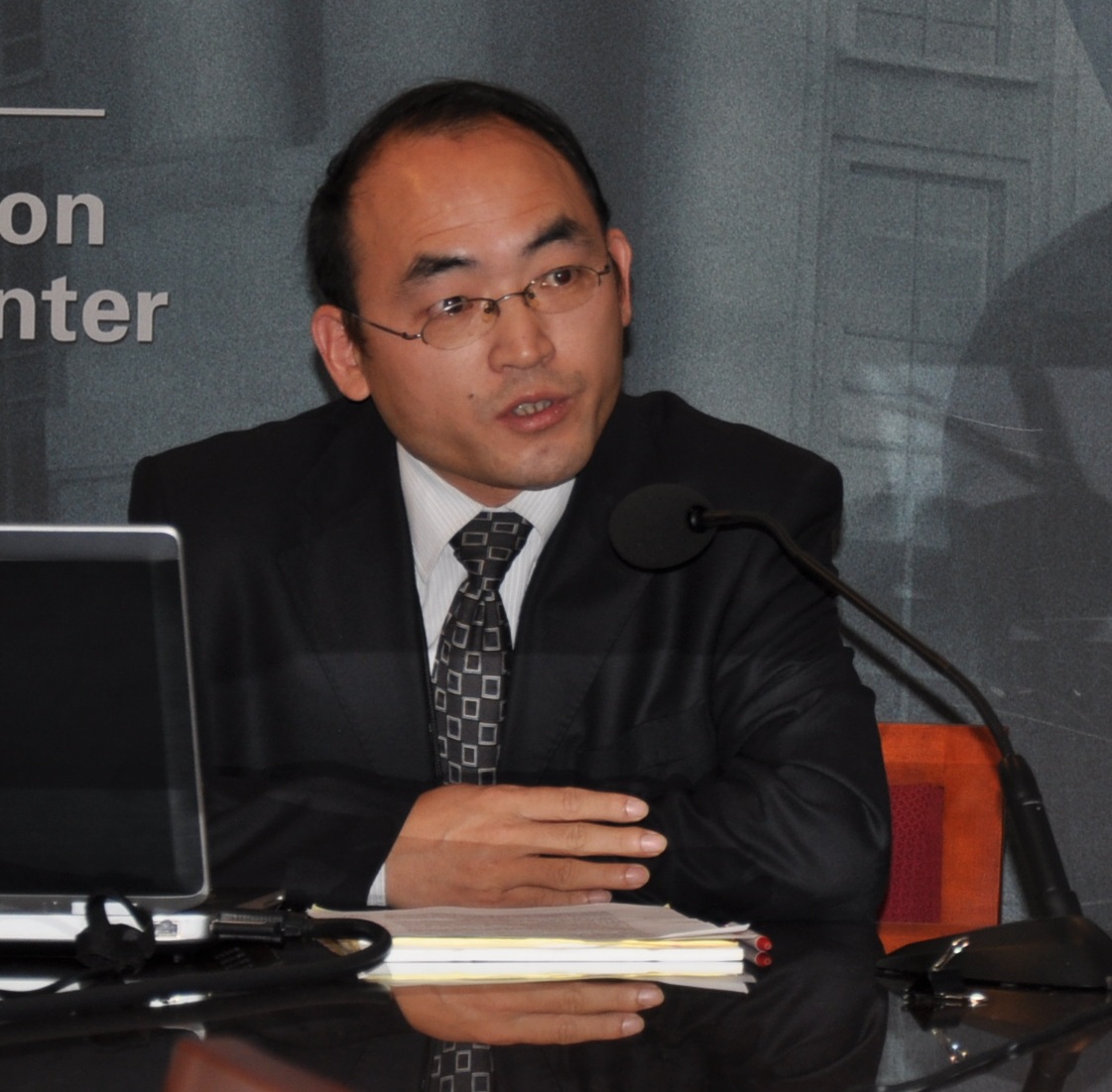
In this short report Fan Jishe updates China’s official position on Nuclear Weapon Free Zones (NWFZ) in general, and analyzes China’s interests in a Northeast Asia NWFZ (NEA-NWFZ) in particular.
Fan Jishe is an associate research fellow at the Institute for American Studies at the Chinese Academy of Social Science and a visiting scholar at the Center for International Security and Cooperation at Stanford University.
This report was originally presented at the New Approach to Security in Northeast Asia: Breaking the Gridlock workshop held on October 9th and 10th, 2012 in Washington, DC.
Go to the articleRegional Cooperation as a Potential Driver of Nuclear and Energy Security Improvements in Northeast Asia
David von Hippel Energy security in general, nuclear energy in particular, and nuclear weapons proliferation are issues that are never far from the news in Northeast Asia (NEA), and recent months have been no exception. Negotiations continue on a new version of the existing US-ROK nuclear energy cooperation, which is set to expire in […]
Go to the articleA Breakthrough Six-Party Summit in 2013? Why Not?
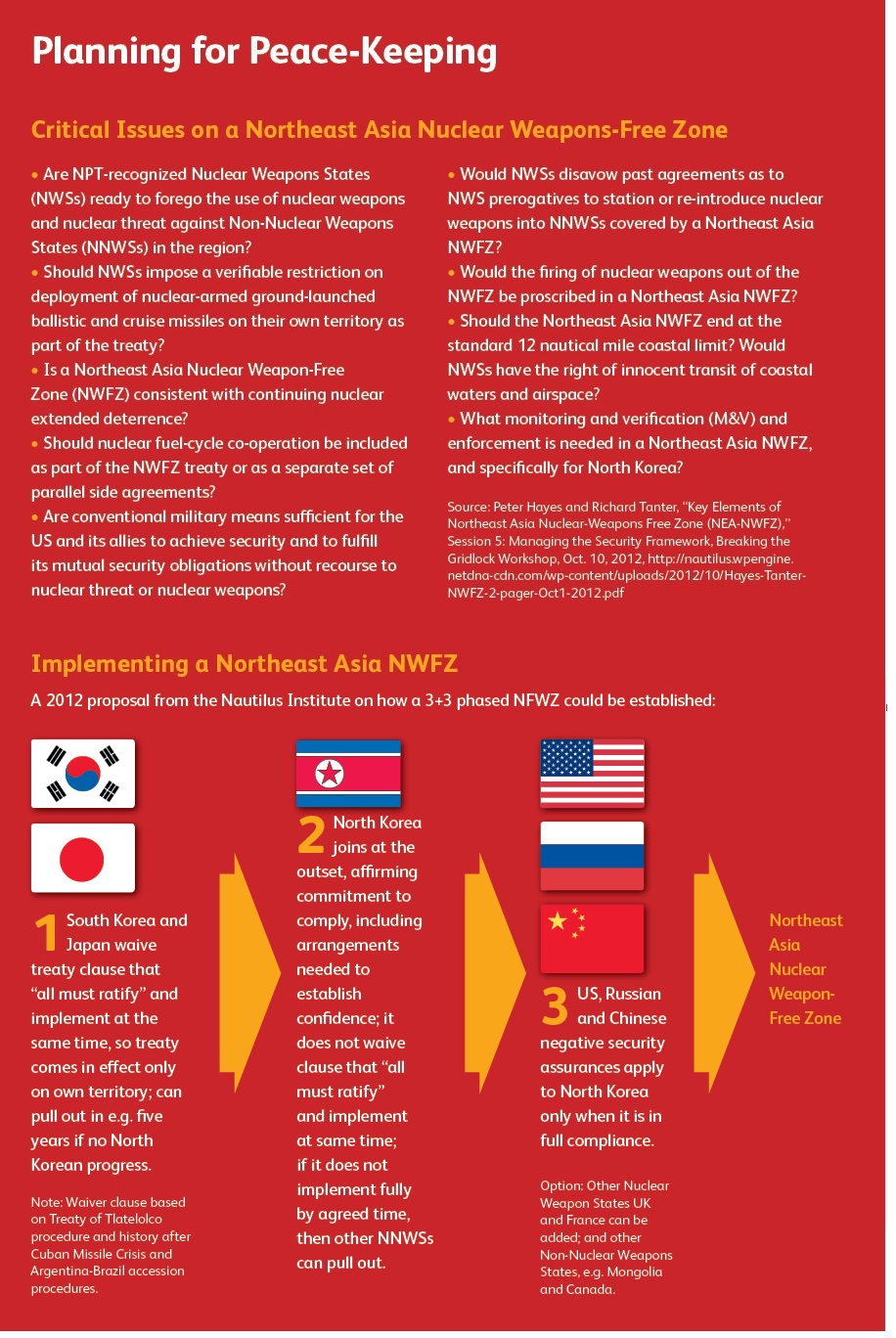
Efforts to get North Korea to give up its nuclear program and to resolve the outstanding security issues that plague the search for peace on the Korean Peninsula seem intractable. The Six-Party talks appear hopelessly stalled, and yet, among forward-thinking policymakers, the search is under way for how to reign in the North Korean nuclear threat.
Nautilus Institute Director Peter Hayes examines one proposal by noted American foreign policy expert Mortin Halperin that may contain just the right ingredients for a comprehensive solution, now that all parties to the Six-Party talks are beginning 2013 with new governments.
Peter Hayes is Director of the Nautilus Institute and a member of the Editorial Board of Global Asia. He is also Adjunct Professor of International Relations at RMIT University.
This article was originally published in Global Asia’s 2012 Winter Edition (Volume 7 Number 4).
Go to the articleClimate adaptation challenges for Pakistan

Climate adaptation challenges for Pakistan
by Saleem Janjua – Climate Change Adaptation Contributor
Pakistan, similar to other developing countries, is undergoing an evolution from an…
Shining Missile, Troubled Shipping
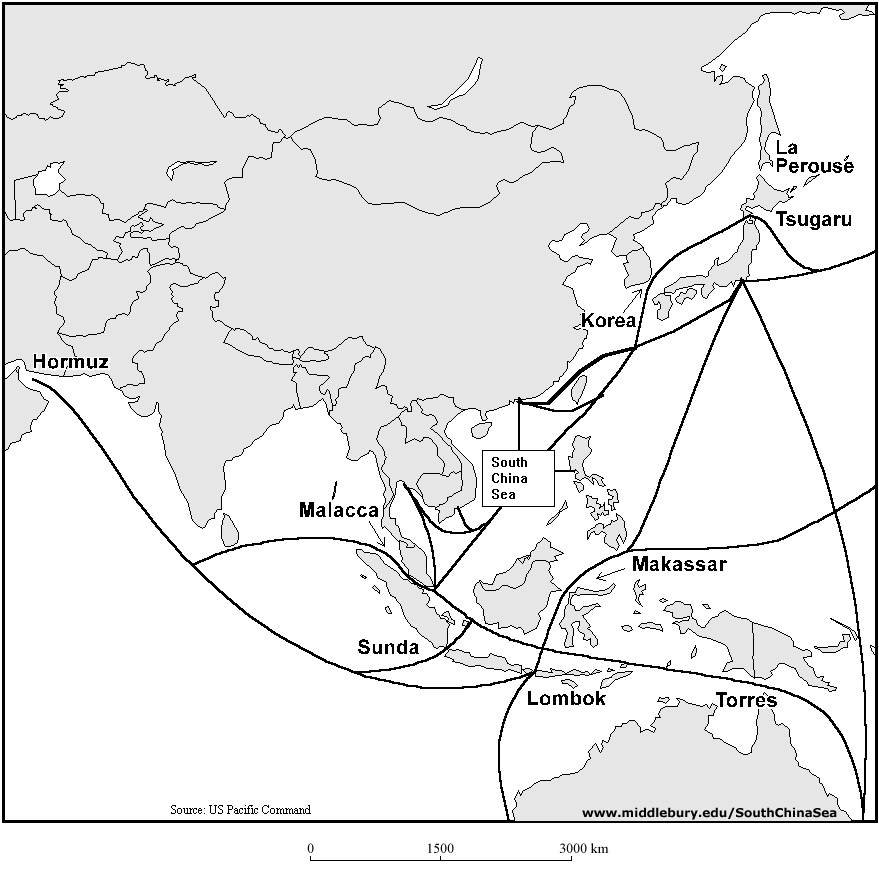
Shining Missile, Troubled Shipping
by Roger Cavazos – DPRK Contributor
OK, North Korea successfully launched a missile/rocket and stole the spotlight again like a shaman chanting wild…
U.S. “Rebalancing” as an Opportunity for a NWFZ in Northeast Asia
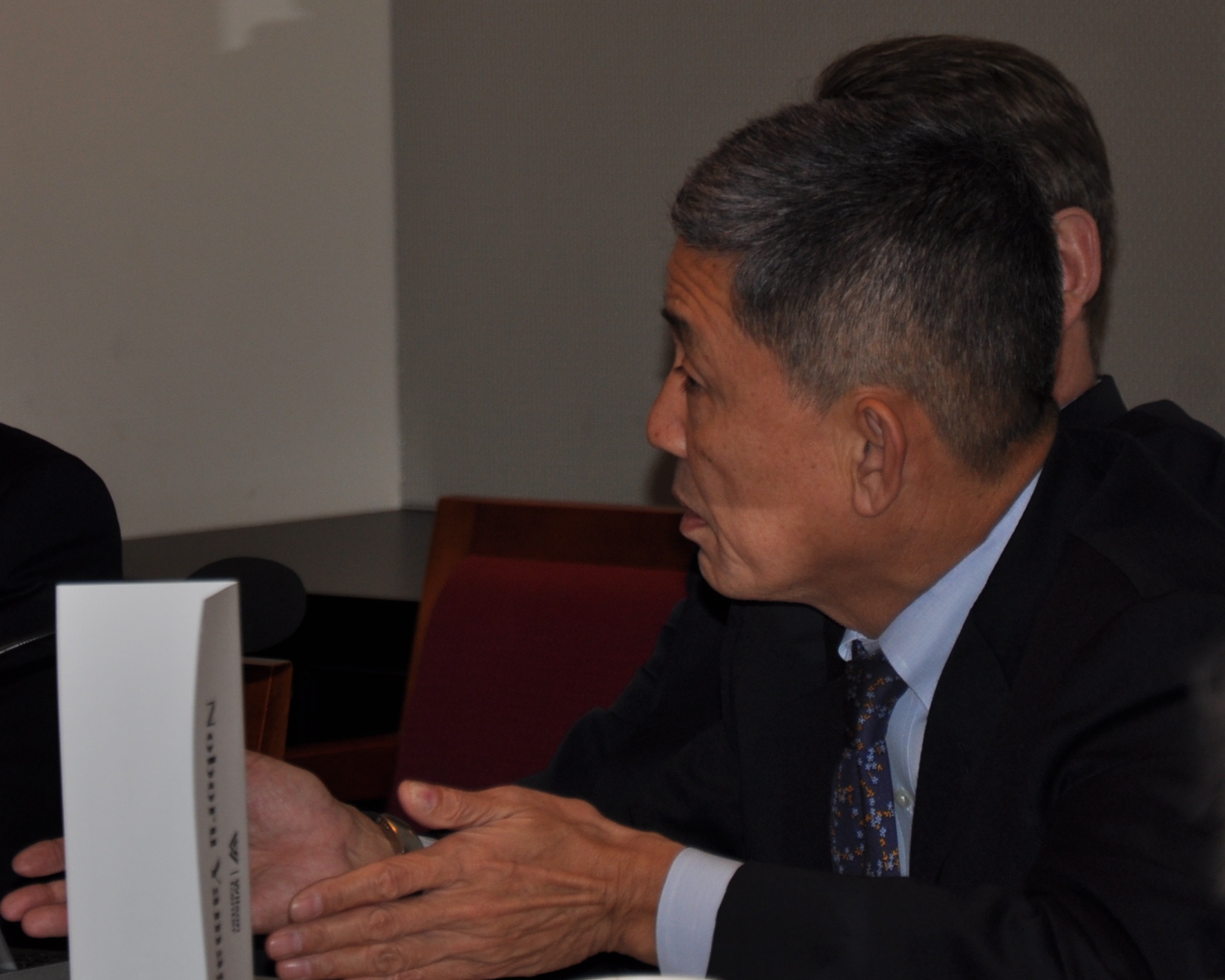
Lieutenant General (Ret.) Noboru Yamaguchi states that U.S. “rebalancing” toward the Asia-Pacific region, if properly implemented, “could provide a tremendous opportunity for allied deterrence and defense to become less reliant on nuclear weapons”. To achieve this Yamaguchi suggests that ““rebalancing” should strengthen U.S. conventional deterrence while the defense posture maintained by its allies should be consonant with such US efforts. This convergence will result in a more reliable allied deterrence posture. and thus U.S. extended deterrence may not have to rely much, if at all, on nuclear weapons to dissuade possible opponents in the region from being aggressive.”
Lieutenant General (Ret.) Noboru Yamaguchi is currently a professor of military history and strategy at the National Defense Academy of Japan.
This report was originally presented at the New Approach to Security in Northeast Asia: Breaking the Gridlock workshop held on October 9th and 10th, 2012 in Washington, DC.
Go to the articlePolitical Rocketry

Political Rocketry
by Peter Hayes – Deterrence Contributor
North Korea’s rocketeers reportedly are busy bees at the Sohae launch site. Why now?…
Australia in the Pacific pivot: national interests and the expanding “joint facilities”
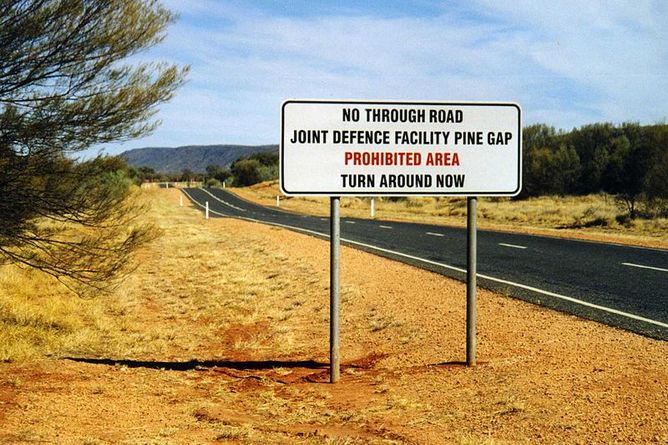
Richard Tanter notes grave concerns raised by former Australian prime ministers concerning strategic policy towards China, and potential differences between Australian and US interests. The annual Australia-United States ministerial coordinating meeting brought an unprecedented level of Australian support for American space military capacities and closer technical integration through an escalating number of “joint facilities”. Tanter concludes by noting that “without the capacity to recognize and act on national interests, a country with a parliamentary democracy operates under a severe democratic deficit. Without that capacity, democratic policy formation about defence becomes a contradiction in terms, and more to the point, a dangerous impossibility.”
Richard Tanter is an Associate at the Nautilus Institute, and professor in the School of Social and Political Studies at the University of Melbourne.
Email: rtanter@nautilus.org
Go to the articleAustralia in the Pacific pivot: national interests and the expanding “joint facilities”

Richard Tanter of the Nautilus Institute notes grave concerns raised by former Australian prime ministers concerning strategic policy towards China, and potential differences between Australian and US interests. The annual Australia-United States ministerial coordinating meeting brought an unprecedented level of Australian support for American space military capacities and closer technical integration through an escalating number of “joint facilities”. Tanter concludes by noting that “without the capacity to recognize and act on national interests, a country with a parliamentary democracy operates under a severe democratic deficit. Without that capacity, democratic policy formation about defence becomes a contradiction in terms, and more to the point, a dangerous impossibility.”
Richard Tanter is Senior Research Associate at the Nautilus Institute, and professor in the School of Social and Political Studies at the University of Melbourne.
Email: rtanter@nautilus.org
Go to the articleSins in the name of children

Sins in the name of children
by Nikhil Desai – Energy Security Contributor
Every climatic disaster is an opportunity to demonise fossil fuels and whip up guilt, anxiety, moral pretensions, and political…

